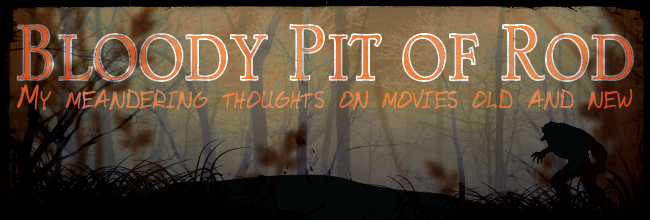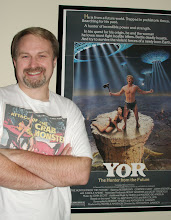
One of the great strengths of Science Fiction as a genre is that it allows for a multitude of types of stories. This is not always recognized by the masses because in the age of the blockbuster we’ve been conditioned to think of Science Fiction as primarily one thing. Because of the overwhelming success of the STAR WARS movies the film industry generally only utilizes Sci-Fi as a shell to make over-sized action movies. Luckily for me, on occasion other kinds of SF stories sometimes slide out of Hollywood.
There have been attempts to make intelligent science fiction films throughout the history of cinema. Long before Kubrick & Clarke crafted 2001:A SPACE ODYSSEY movies like THE DAY THE EARTH STOOD STILL and FORBIDDEN PLANET showed that the genre could support tales deeper than rampaging giant insects or Ming the Merciless surrogates. In the past 30 years some great science fiction films have been made that so little resemble Mr. Lucas’ Republic serial myth as to be unrecognizable as the same type of movie. Films such as the melancholy love story SOLARIS, the religious allegory THE TRUMAN SHOW, the emotional drama about the human will GATTACA, the horrendously dark dystopia BRAZIL and even the social satire about class structure THEY LIVE show filmmakers using the genre to do more than display cool things blowing up.
Unfortunately one of the pitfalls of making a thoughtful science fiction film is that you can commit the cardinal sin that any other thoughtful film can- you can make a boring movie. Such is the sad fate of ASSIGNMENT: OUTER SPACE (a.k.a. THE SPACE MEN). Made in Italy in 1960 by first time director Anthony Margeretti it’s a plodding exercise in tedium that has only a few things to recommend it. The film tries hard to be a thinking man’s tale about the future of space travel but only manages to be cliched and very predictable. The story concerns a 22nd century journalist newly arrived on an orbiting space station. This guy is a bit of a jerk and when he meets his equally jerky commanding officer they (surprise) don’t get along. The reporter pushes his way into things but through dumb luck is in the right place at the right time to rescue a man in a space accident. When the person he saves turns out to be a woman (cue leering glances) he, of course, falls in love only to discover he’s now in a triangle with the stiff necked commander. Then our nosy reporter finds out about a secret mission to Mars and uses his contacts back home to force his way onto the crew. En route the mission is revealed to be an operation to stop a dangerous space ship from crashing into Earth and destroying the entire planet. All of this happens in only 73 minute but a longer 73 minutes you'll be hard pressed to locate. Showing little of the flair for the genre he would demonstrate later in WILD WILD PLANET and WAR OF THE PLANETS Margeretti directs as if every scene needed to be dragged out as long as possible. Pointless, badly written dialog scenes go on forever with cardboard characters mouthing techno babble or idiotic grade school level love speak. My eyes glazed over several times forcing me to back up a minute or two to see if I missed anything vital. I never did.
There is just not much that’s interesting about ASSIGNMENT: OUTER SPACE. There are some well-done miniatures and a few of the special effects are neat. I especially liked the all too brief looks at the misty surface of Mars’ moon Phobos during an attempted rescue. Also, the look of the interiors of the space craft are well done with a futuristic but functional design that rings true even if science in the intervening 46 years has made many of the devices obsolete. The film has a quaint look that occasionally touched this old SF fan boy’s heart. But man! That story is dull dull dull! I guess I shouldn't complain too loudly though. I only paid about 27 cents for a copy on DVD!








1 comment:
I've been stuck on a similiar thought lately while rewatching old Twilight Zone episodes. Part of what made the show great wasn't flashy CG visuals (not that they had them then obviously), but it was the stories focusing on characters in a situation and how they react. This is a concept which is in short supply.
Gotta love the later Margeretti SF films though.
Post a Comment